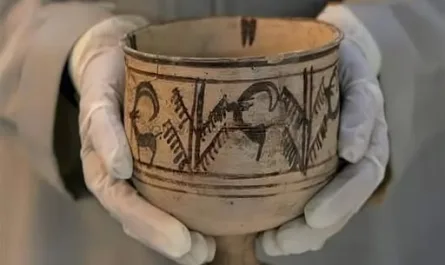In the annals of American organized crime, few figures are as unforgettable — or as physically imposing — as Sylvan Harry Scolnick, better known to the underworld, the press, and the FBI as “Cherry Hill Fats” or “Big Cherry.”

Born in Philadelphia on June 27, 1930, Scolnick would grow into one of the most brilliant and audacious white-collar criminals of the postwar era. By the time he died at just 46, he had orchestrated scams that allegedly netted him between $20 and $50 million (hundreds of millions in today’s dollars), turned federal informant, written a bestselling tell-all memoir, and become a legitimate media personality — all while tipping the scales at 600 to over 750 pounds, depending on who was telling the story.
This is the larger-than-life tale of the Jewish hustler from South Philly who outsmarted banks, manufacturers, insurance companies, and even parts of the Italian mob — until the house of cards finally collapsed.
The Making of a Master Swindler
Scolnick didn’t come from poverty or a broken home in the classic gangster sense. He was bright — genius-level IQ by many accounts — and learned early that brains, charm, and paperwork could make far more money than a gun ever could.
His signature hustle was the “bust-out” or planned bankruptcy fraud, refined to an art form in the 1950s and 1960s:
- Incorporate a fake wholesale company (appliances, furniture, jewelry — anything with high resale value).
- Build impeccable (but entirely forged) credit references, financial statements, and Dun & Bradstreet reports.
- Order massive quantities of merchandise on 90–180 day credit terms.
- Immediately fence the goods for cash at fire-sale prices through underground networks.
- Declare bankruptcy when the bills come due — the warehouses empty, the money long gone.
Rinse and repeat under a new corporate name. Prosecutors later said Scolnick ran dozens of these operations, sometimes simultaneously, bleeding suppliers across the country dry.
But bust-outs were just the headline act. Court records and his own confessions list an astonishing menu of rackets:
- High-end jewelry and safe-deposit box burglaries
- Arson-for-insurance
- Home-improvement and roofing scams
- Mortgage and loan fraud
- Forged cashier’s checks and credit-card rings
- Extortion and blackmail on the side
He was, in the words of one federal judge, “a one-man crime wave.”

The Fall — and the Deal of a Lifetime
By 1965 the feds finally had enough. A string of bust-outs led to federal bankruptcy-fraud indictments. In 1966 Scolnick pleaded guilty and drew a five-year stretch at Lewisburg Federal Penitentiary.
Paroled in 1970 after serving less than four years, he promptly got pinched again — this time on 13 Pennsylvania state counts that could have added up to over a century behind bars.
Facing life in a 700-pound body that was already failing, Scolnick did what any smart hustler would do: he flipped.
Working with a young, ambitious Philadelphia District Attorney named Arlen Specter (yes, that Arlen Specter), Big Cherry became one of the most valuable informants in Philly history. His testimony and inside knowledge reportedly took down more than 100 criminals — burglars, loan sharks, corrupt businessmen, and even some mob-connected figures.
The DA’s office liked him so much they once threw him a surprise Christmas party.
The Book, the Fame, the Myth
Protected and paroled, Scolnick did what no master criminal had really done before: he went public.
In 1973 he co-wrote (with journalist Robert H. Adleman) the memoir Alias Big Cherry: The Confessions of a Master Criminal. Part how-to manual, part self-aggrandizing autobiography, the book was a sensation — a gritty, funny, technically dazzling tour through the underworld of financial crime.
He appeared on talk shows (including The Merv Griffin Show), lectured to business groups about fraud prevention (“Who better to teach it than the guy who perfected it?”), and for a brief, surreal moment became a celebrity anti-hero.
Critics were mixed. The New York Times review called it fascinating but warned that Big Cherry was still conning the reader right off the page.
The Man Behind the Myth
By the mid-1970s, Scolnick’s body had become his prison. Stories — many verified — paint a tragic picture:
- Weighed on truck scales because regular ones maxed out
- Transported in panel trucks or even U-Haul vans
- Custom-reinforced furniture, a bed made from two welded king-size frames
- Housebound in his final years, doing interviews from his Cherry Hill living room
On September 1, 1976, Sylvan Scolnick died at home of heart failure related to morbid obesity. He was 46 years old.
His obituary ran in The New York Times under the headline “Sylvan Scolnick, 46, Criminal Informer.”
Legacy: Genius, Monster, or Both?
Nearly fifty years later, Cherry Hill Fats remains a cult figure in true-crime circles. Reddit threads explode every time someone rediscovers him. Old copies of Alias Big Cherry still sell for hundreds of dollars. And in Philadelphia and South Jersey, old-timers still swap stories about the 700-pound Jewish kid from South Philly who scammed America and lived to brag about it.
He wasn’t a killer. He wasn’t a mob boss. But in an era of Tommy guns and concrete shoes, Sylvan Scolnick proved you could steal more with a fountain pen and a corporation than any crew could with masks and guns.
And that, perhaps, was his greatest con of all.
R.I.P. Big Cherry — the fattest legend the underworld ever had.





